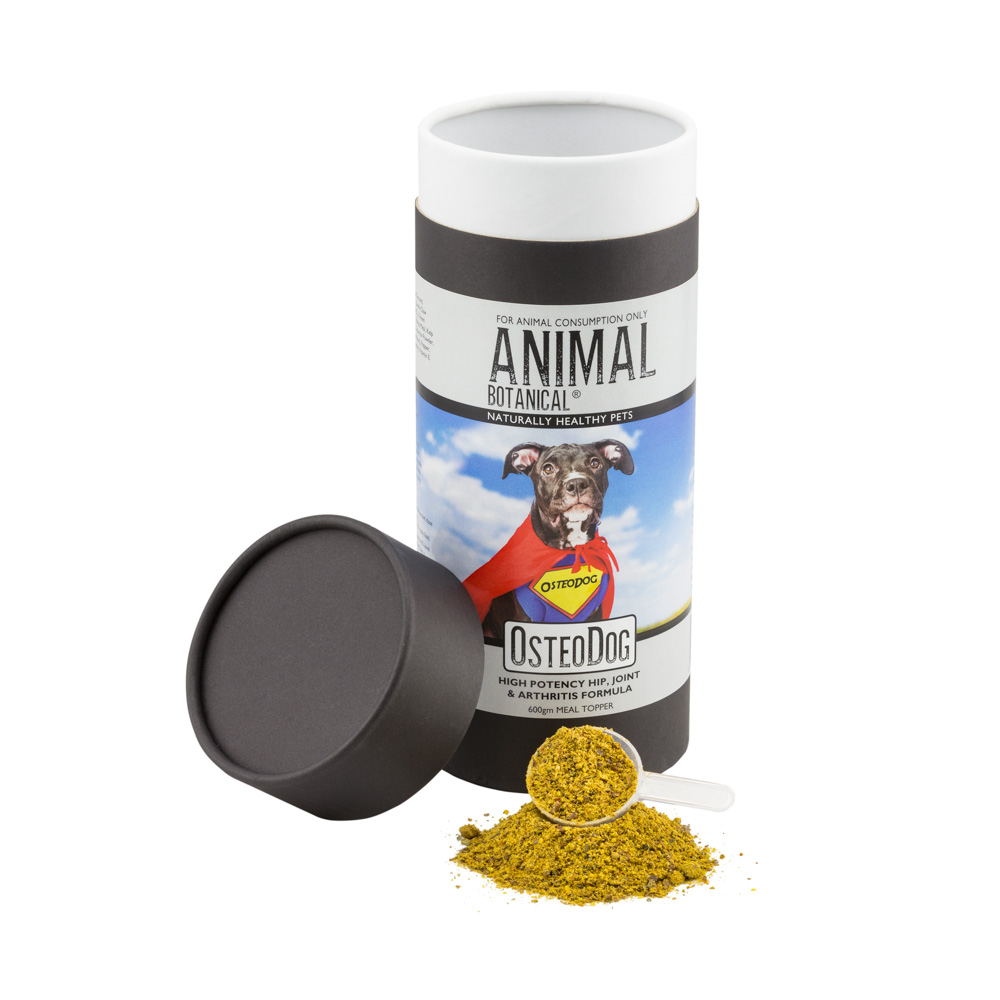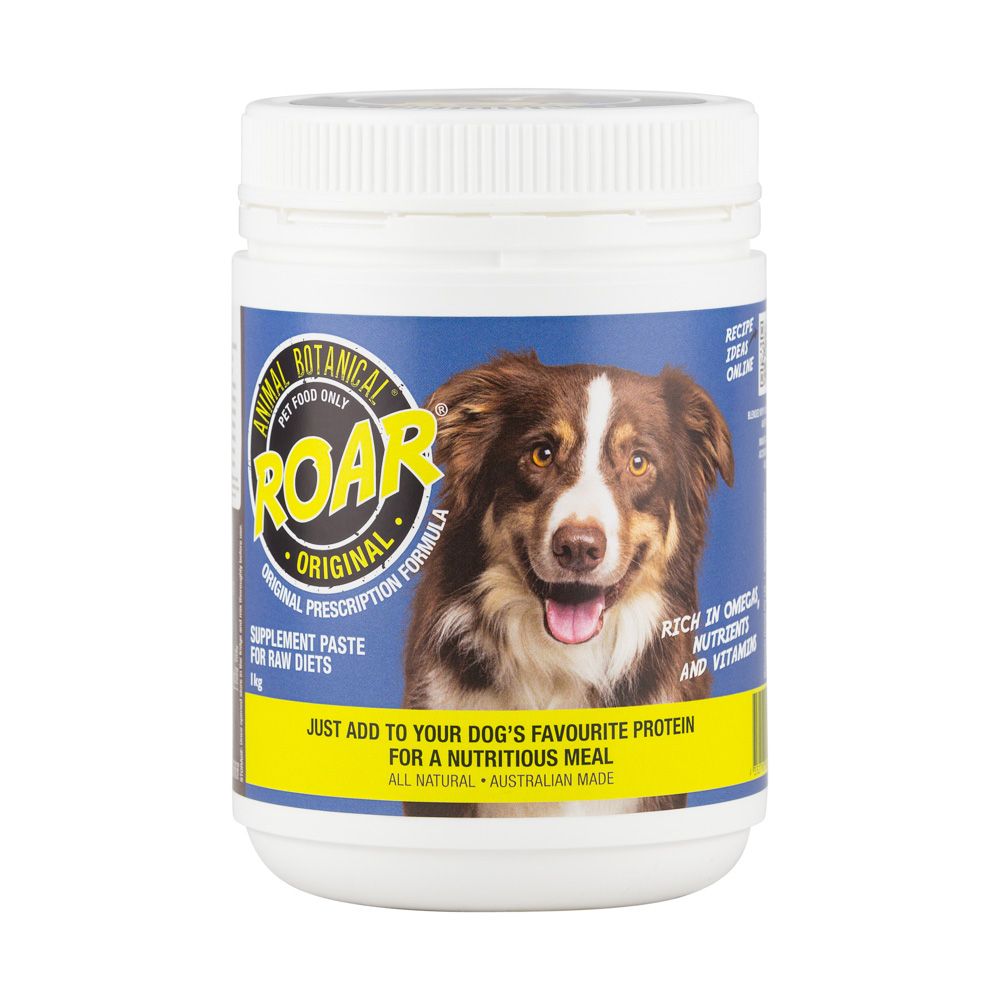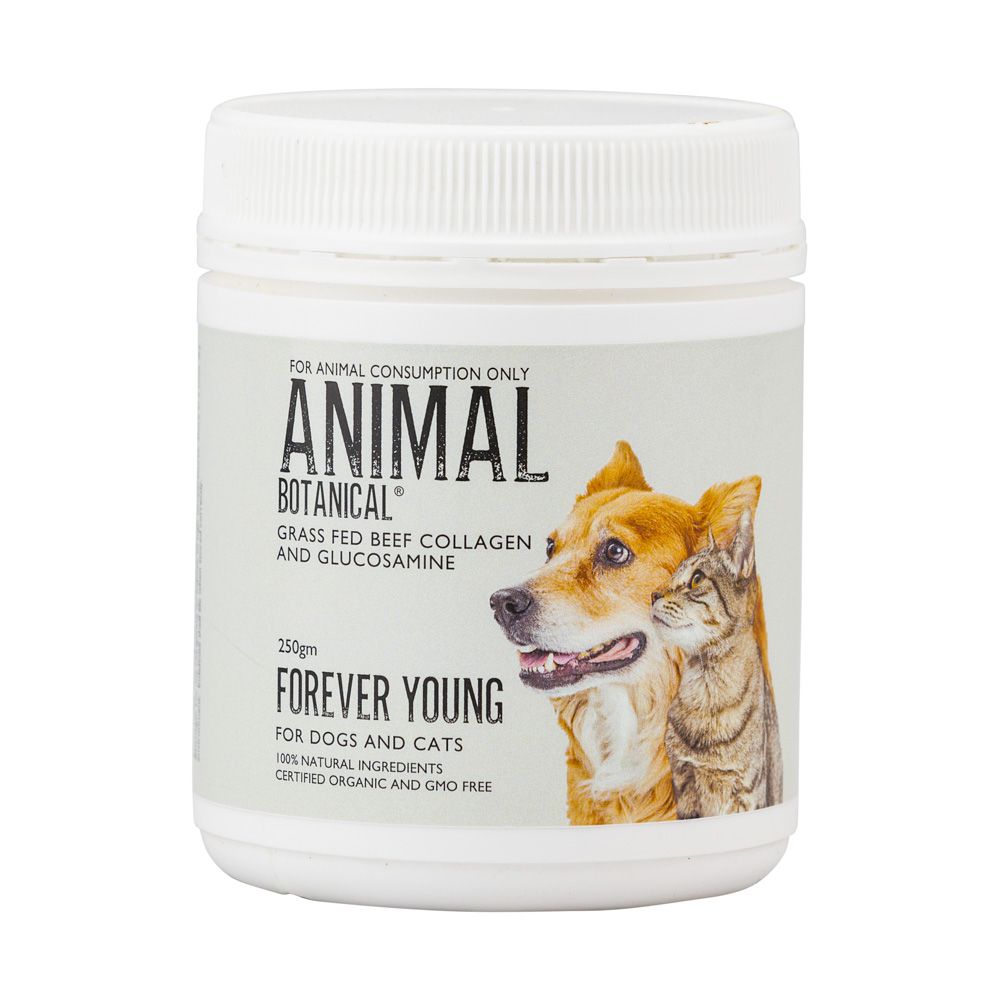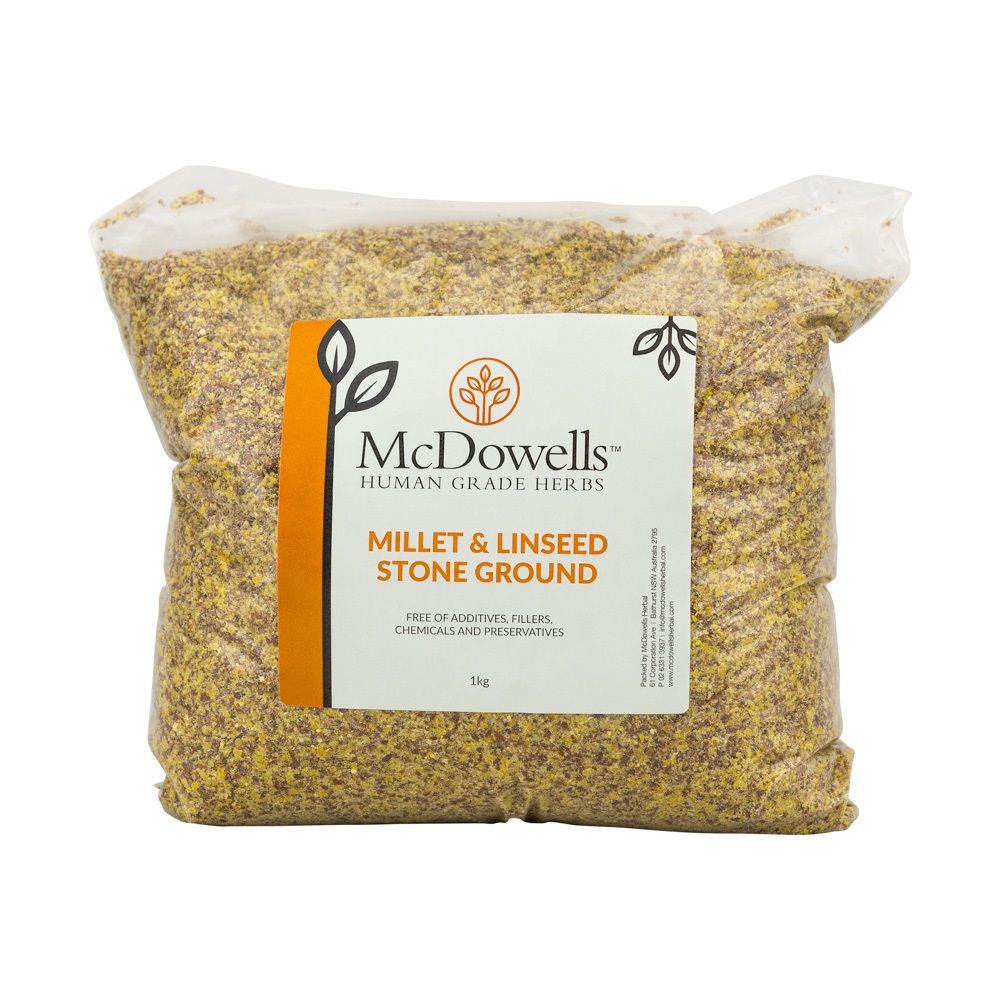The structural system of a dog is made of bones, cartilage, ligaments and tendons. The anatomy of dogs varies from breed to breed but there are physical characteristics that are the same. One thing that all dogs have in common is that good nutrition is essential!

Bones
Dogs have between 319 – 321 bones in their body (shorter tails have fewer vertebrae than longer tails). Some breeds can also have extra bones in their hind dewclaws. The front and back legs of a dog are as different as human arms and legs. A puppies' growth is complete around 12-18 months of age, where the growth plates close and are replaced by solid bone.
Joints
Joints are found throughout the body wherever two bones meet. Dogs have three different types of joints - fibrous joints, cartilaginous joints and synovial joints.
Ligaments and tendons
Ligaments stretch across the joints to connect the bones. They are also found in the abdomen area, where they support the internal organs and help to hold these organs in position. Collagen makes up 70 to 90% of a dog’s muscles, tendons, and ligaments.
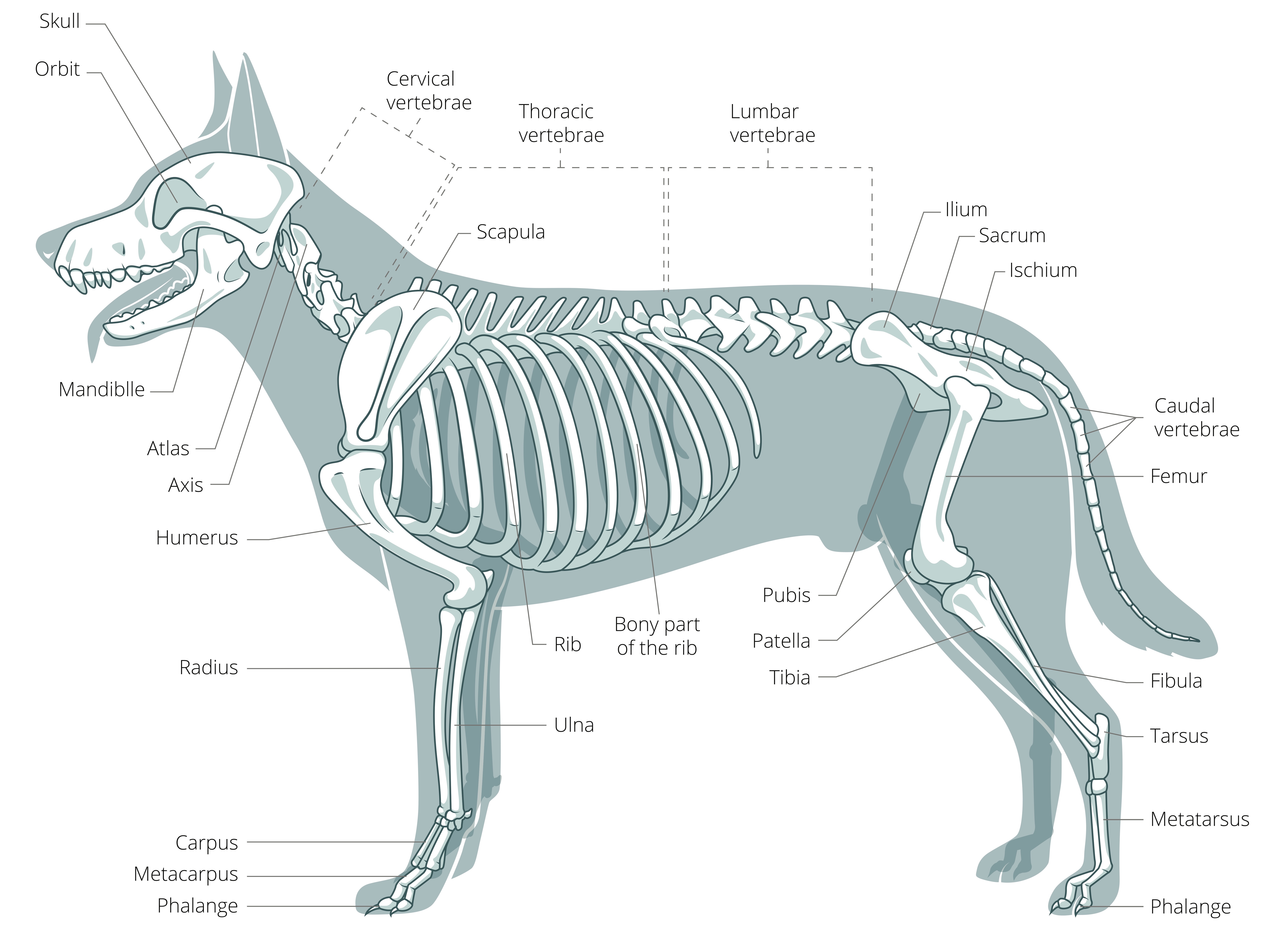
Common Diseases of the joints and ligaments
- Degenerative joint disease (DJD)
- Hip and elbow dysplasia
- Cruciate ligament rupture
- Joint Trauma
- Osteochondrosis
- Displacement of the kneecap
- Carpal hyperextension injuries
What's the best way to ensure your dog's bones and ligaments are healthy?
Diet and lifestyle
It is essential that the basic diet contains the right trace minerals, vitamins and fatty acids. Proper nutrition, from gestation and beyond, will ensure joints and ligaments remain healthy for as long as possible. In the wild, dogs evolved eating the meat, bones and offal of kill or dead animals.
Keeping your dog at an ideal ideal weight means there's less impact and demand on joints. If a dog is carrying extra weight, there will be increases stress on the joints. One of the main reasons for joint stiffness in dogs is excess weight!
Glucosamine
Glucosamine is a common and effective joint supplement for animals and people. Research shows that it reduces inflammation, promoting healing, and increasing fluid retention in the cartilage, which provides more cushioning for the joint.
MSM (Methylsulfonylmethane)
MSM is a form of organic sulphur. It assist in the production of amino acids in the body, which promote the development of 28 important proteins in the musculoskeletal system. It is the building block for protein, tendon and ligament health. It can help with cartilage formation and is shown to promote circulation.
Collagen
Collagen is useds to strengthen cartilage, bone, tendons and ligaments. The earlier you include both a collagen supplement and feed foods high in collagen, the better. By including good souces of collagen (eggs, meats and the right type of bones) and adding a natural collagen supplement, you're giving your dog a better start at life and supporting your friend in to old age.
Collagen. cab also support coat and nail health, build and maintain muscle and reduce arthritis, inflammation and pain.
MIllet and Linseed
Millet contains especially high levels of organic silica compounds as well as carbohydrate and many other minerals. Silica is the key to balancing the calcium scaring that occurs in conditions like ringbone.
Linseed - is specific nourishment for strength and elasticity of ligaments and attachment points and is a whole feed source of Omega 3 and 6 and Linoleic acids.

